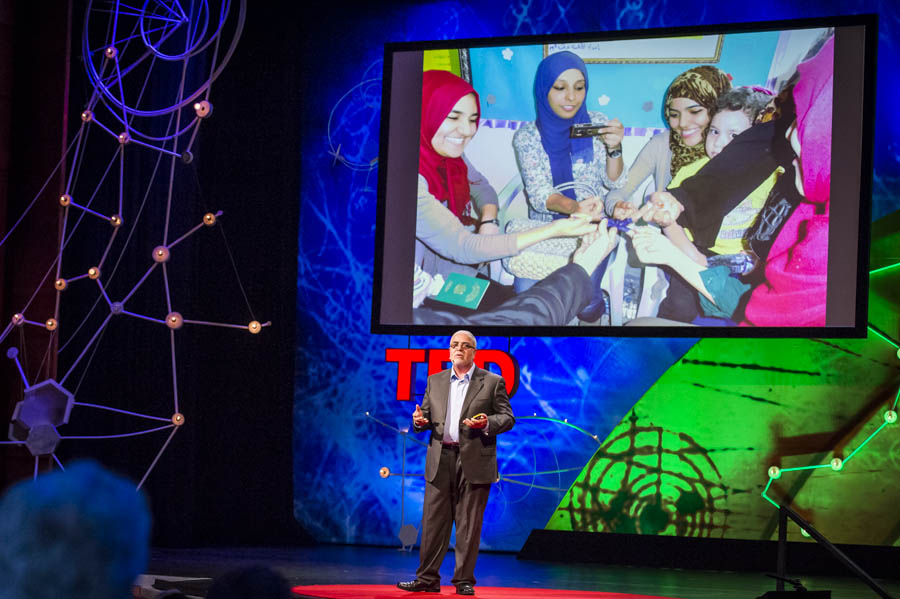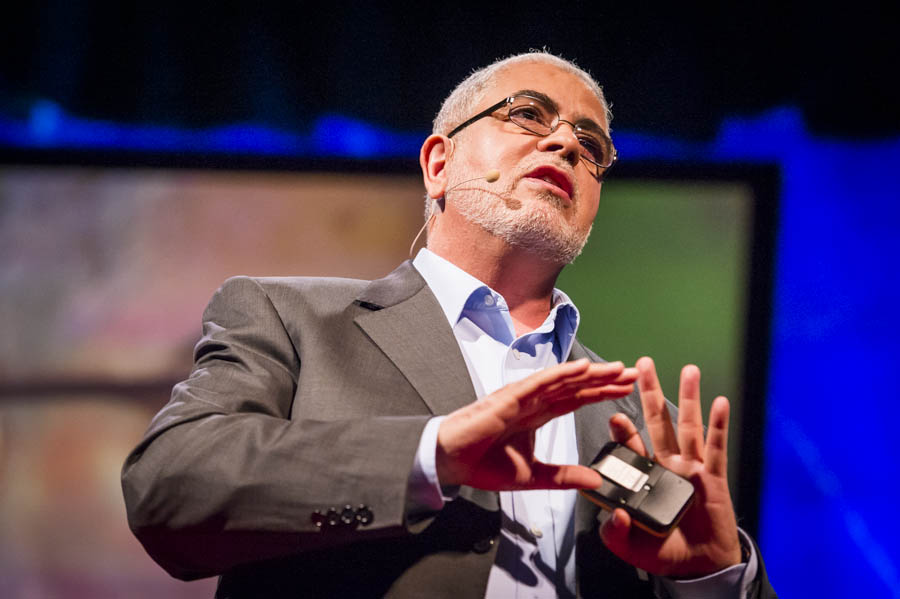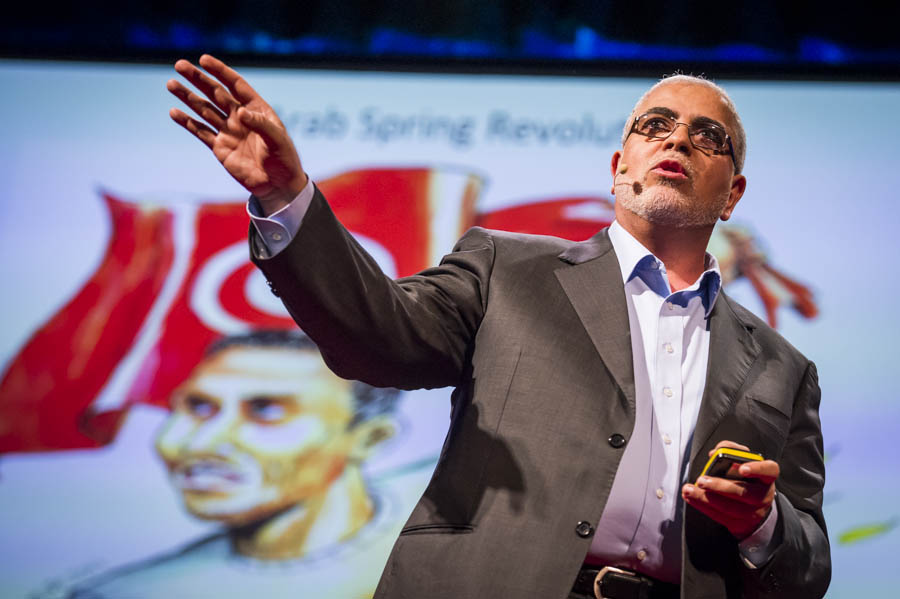Former Deputy Prime Minister of Libya and engineering professor Mustafa Abushagur takes the stage at TEDGlobal 2013 to look at where the Arab Spring has been, and where it is going.
The Arab world once led human civilization in culture, philosophy, mathematics and science, but in the last century the region found itself first under colonization — then, after gaining independence, its people found themselves living under dictatorships, mostly led by militarized Arab nationalists.
In 1969 Moammar Gaddafi came to power after a coup d’état in Libya. Abushagur had just finished high school. In 1975 Abushagur left Libya to study abroad. It was the last time that he would see his family in decades. Having declared a Cultural Revolution in 1973, Gaddafi’s regime was becoming virulent. Gaddafi ruled for 42 years in Libya. For 42 years, says Abushagur, “only one man spoke and everyone listened, and anyone who dared to speak ended up in prison or dead.” Abushagur joined the opposition against Gaddafi and was exiled. He says, “Libyans will never forget the holy month of Ramadan in 1984 when their children were hanged in the streets across the country.” The executions were broadcast live on television.
On December 17, 2010, 26-year-old Tunisian Mohamed Bouazizi set himself on fire in protest of political conditions, igniting the Arab Spring. Everything changed. As Abushagur says, “By setting himself on fire, he set the whole Arab world on fire.” In the next few months, as the governments in Tunisia, Libya and Egypt fell, the Arab world found itself asking: What next? After the revolution, in Libya, expectations for immediate change were extremely high; but, as Abushagur says, “After dictators came to their knees we still had the same problems. … We had to fight against the legacy of the dictatorships.”
In 2011 Abushagur joined the first interim government in Libya as Deputy Prime Minister. The pressure was immense: The desire to transform after years of oppression weighed on his shoulders. The government decided transparency would be at the top of their agenda. For the first time ever, the government published meeting minutes, plans for its initial term, and financial accounting of income and expenditures. In July 2012, Libya held its first elections in almost 50 years. They were “the first transparent elections, period,” says Abushagur. Nearly 90 percent of the people eligible to vote registered, and voter turnout was 75 percent. Abushagur recalls seeing a 95-year-old woman leaving the polls. When he asked her who she voted for, she said, “Really, I don’t know. But I just wanted to vote and exercise my right.”
But, says Abushagur, Libya is now in danger of losing the progress it has made. Instability has led to high unemployment rates, among many other problems. He outlines three major areas the post-Arab Spring nations must focus on to build sustainable democracies, a strategy he calls the “E3“:
1. Education
Abushagur calls for a major overhaul of education in North Africa. Our education systems don’t prepare our students for the job market, he says; they need more useful training. Drawing on his years of experience in American secondary schools, Abushagur suggests that Libya can learn a lot from the rest of the world in the field of education. Schools, he says, are a place for peaceful and respectful civil debate and dissent. A strong education system counters radical extremism, which preys on the illiterate and poorly educated. Education reform is imperative.
2. Entrepreneurship
The power and creativity of young people in the Middle East and North Africa has been proven, says Abushagur. After all, he says, “Many of them led our revolutions.” With some of those nations’ populations dominated by people under 35, governments should encourage entrepreneurship and create ecosystems for new businesses to start and grow. He calls for entrepreneurship incubation centers, where young people can find support, grants, resources, mentors, and reliable internet and electricity, and where they can connect with other like-minded creative thinkers.
3. Economics
Abushagur calls for the establishment of economic development zones to counter the “archaic and nonsensical” regulatory systems and laws rampant in Libya and other post-Arab Spring nations. The conditions are so bad, says Abushagur, that it would be far easier to create parallel, simple, efficient institutions from scratch under fresh rules and regulations.
The Arab Spring is at a crossroads. Abushagur says, “We have a window of opportunity in the Arab world — and that window is shrinking.”



Comments